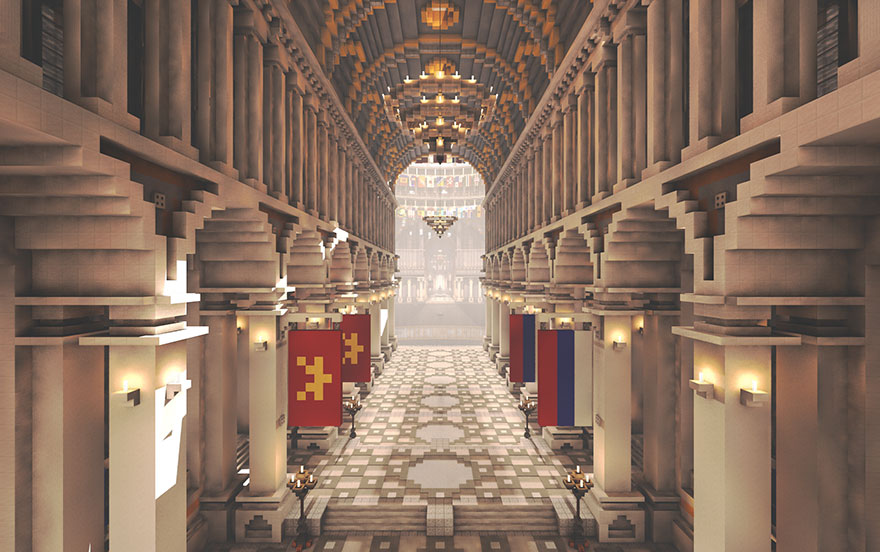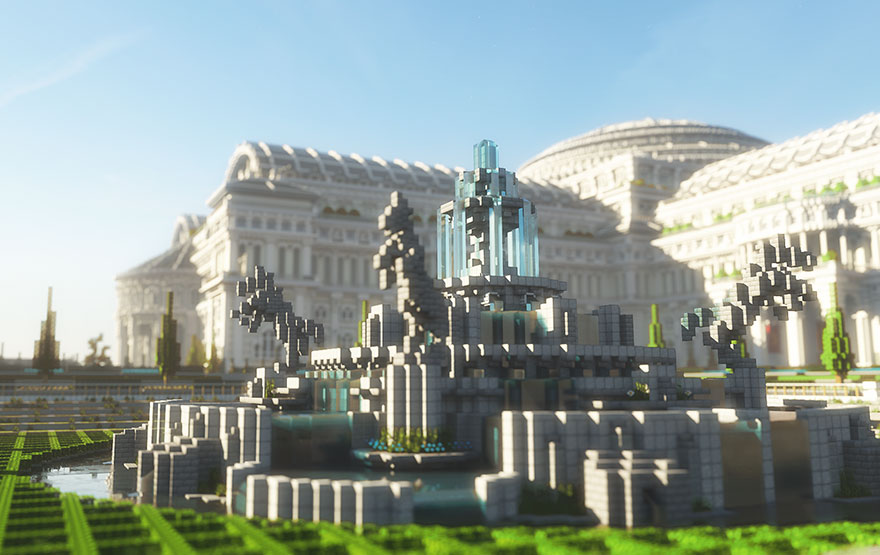Most of us live in countries where freedom of speech is considered a fundamental human right and it would be hard to imagine living in a different state than that. However, not all of us are blessed with this sometimes overlooked right as there are a number of countries in this world where governments actively censor their citizens, especially those whose profession is to report facts. Journalists.
In a number of places around the world, journalists are banned, jailed, exiled, and even killed for their words. In order to make their message heard and reach the places where they’re banned, Reporters Without Borders (RSF) opened a special type of library that could reach millions. They built it in Minecraft.
The creators reason their choice by explaining the library’s accessibility: “Reporters Without Borders (RSF) used this backdoor to build “The Uncensored Library”: a library that is now accessible on an open server for Minecraft players around the globe. The library is filled with books containing articles that were censored in their country of origin. These articles are now available again within Minecraft—hidden from government surveillance technology inside a computer game. The books can be read by everyone on the server, but their content cannot be changed. The library is growing, with more and more books being added to overcome censorship.”
More info: uncensoredlibrary.com
The Uncensored Library is a project aiming to provide free access to information in areas where censorship exists


The virtual library opened its doors on the 12th of March to mark the World Day Against Cyber Censorship. This campaign uses the hashtag #TruthFindsAWay to encourage people to share their thoughts as well as spread the message about anti-censorship efforts.
Journalists from 5 different countries (Egypt, Mexico, Russia, Saudi Arabia, and Vietnam) where their word has been silenced now have a chance to be heard again. “Their articles have now been republished as Minecraft books in English and the articles’ original language and are available in countries that censored their works,” the project representatives explained.


RSF collaborated with BlockWorks to create this stunning piece. “The library was built over 3 months, and is made from over 12.5 million blocks. It took 24 builders from 16 different countries over 250 hours to design and create the library. The library’s main dome is nearly 300 metres wide, which would make it the second largest in the world.”


Why did they choose Minecraft? The representatives explained that a huge part of their reasoning was based on just how popular Minecraft is with younger generations. Over a hundred million people play the game even today, despite it being over 10 years old.
The library creators explained how they managed to combine the game mechanics with their message:
“Minecraft is an open-world game where players can explore an intentionally blocky, pixelated world. Here they can discover and extract raw materials, craft tools, build structures, and cooperate with other players. The game’s creative mode is often described as ‘digital Lego’ and is being used in educational environments. Part of Minecraft’s gameplay is gathering and crafting items, such as books. Minecraft books have 100 pages and can be written freely. Other players can read them but cannot change the content of the books on the server.”


The virtual library, while giving access to free information, also draws attention to a serious problem:
“In 2019 alone, 39 journalists and 10 citizen journalists got killed and currently there are 228 journalists and 120 citizen journalists imprisoned. These are alarming numbers. At the turn of the 21st century, nearly half of the world population still lacks access to free information. Deprived of essential knowledge and manipulated by disinformation, they are prevented from living in a political system in which factual truth serves as the basis for their life choices.”



You can watch the video about the library below
from Bored Panda https://ift.tt/2QhXjLd

No comments:
Post a Comment